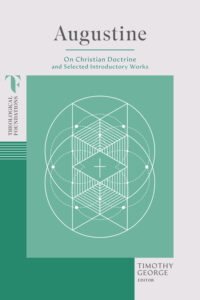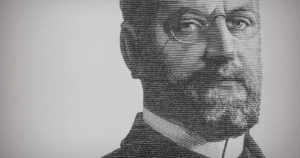
Augustine, On Christian Doctrine
T here are certain rules for the interpretation of Scripture which I think might with great advantage be taught to earnest students of the word, that they may profit not only from reading the works of others who have laid open the secrets of the sacred writings, but also from themselves opening such secrets to others. These rules I propose to teach to those who are able and willing to learn, if God our Lord do not withhold from me, while I write, the thoughts He is wont to vouchsafe to me in my meditations on this subject. But before I enter upon this undertaking, I think it well to meet the objections of those who are likely to take exception to the work, or who would do so, did I not conciliate them beforehand. And if, after all, men should still be found to make objections, yet at least they will not prevail with others (over whom they might have influence, did they not find them forearmed against their assaults), to turn them back from a useful study to the dull sloth of ignorance.There are certain rules for the interpretation of Scripture which I think might with great advantage be taught to earnest students of the word. Click To Tweet
here are certain rules for the interpretation of Scripture which I think might with great advantage be taught to earnest students of the word, that they may profit not only from reading the works of others who have laid open the secrets of the sacred writings, but also from themselves opening such secrets to others. These rules I propose to teach to those who are able and willing to learn, if God our Lord do not withhold from me, while I write, the thoughts He is wont to vouchsafe to me in my meditations on this subject. But before I enter upon this undertaking, I think it well to meet the objections of those who are likely to take exception to the work, or who would do so, did I not conciliate them beforehand. And if, after all, men should still be found to make objections, yet at least they will not prevail with others (over whom they might have influence, did they not find them forearmed against their assaults), to turn them back from a useful study to the dull sloth of ignorance.There are certain rules for the interpretation of Scripture which I think might with great advantage be taught to earnest students of the word. Click To Tweet
There are some, then, likely to object to this work of mine, because they have failed to understand the rules here laid down. Others, again, will think that I have spent my labor to no purpose, because, though they understand the rules, yet in their attempts to apply them and to interpret Scripture by them, they have failed to clear up the point they wish cleared up; and these, because they have received no assistance from this work themselves, will give it as their opinion that it can be of no use to anybody. There is a third class of objectors who either really do understand Scripture well, or think they do, and who, because they know (or imagine) that they have attained a certain power of interpreting the sacred books without reading any directions of the kind that I propose to lay down here, will cry out that such rules are not necessary for any one, but that everything rightly done towards clearing up the obscurities of Scripture could be better done by the unassisted grace of God.
To reply briefly to all these. To those who do not understand what is here set down, my answer is, that I am not to be blamed for their want of understanding. It is just as if they were anxious to see the new or the old moon, or some very obscure star, and I should point it out with my finger: if they had not sight enough to see even my finger, they would surely have no right to fly into a passion with me on that account. As for those who, even though they know and understand my directions, fail to penetrate the meaning of obscure passages in Scripture, they may stand for those who, in the case I have imagined, are just able to see my finger, but cannot see the stars at which it is pointed. And so both these classes had better give up blaming me, and pray instead that God would grant them the sight of their eyes. For though I can move my finger to point out an object, it is out of my power to open men’s eyes that they may see either the fact that I am pointing, or the object at which I point.These rules I propose to teach to those who are able and willing to learn. Click To Tweet
But now as to those who talk vauntingly of Divine Grace, and boast that they understand and can explain Scripture without the aid of such directions as those I now propose to lay down, and who think, therefore, that what I have undertaken to write is entirely superfluous. I would such persons could calm themselves so far as to remember that, however justly they may rejoice in God’s great gift, yet it was from human teachers they themselves learnt to read. Now, they would hardly think it right that they should for that reason be held in contempt by the Egyptian monk Antony, a just and holy man, who, not being able to read himself, is said to have committed the Scriptures to memory through hearing them read by others, and by dint of wise meditation to have arrived at a thorough understanding of them; or by that barbarian slave Christianus, of whom I have lately heard from very respectable and trustworthy witnesses, who, without any teaching from man, attained a full knowledge of the art of reading simply through prayer that it might be revealed to him; after three days’ supplication obtaining his request that he might read through a book presented to him on the spot by the astonished bystanders.
The above excerpt is from the preface to Augustine’s On Christian Doctrine. B&H Academic, 2022. Edited and Introduced by Timothy George.

